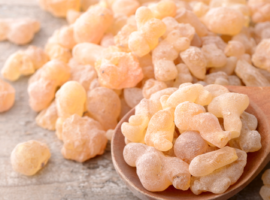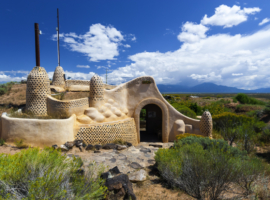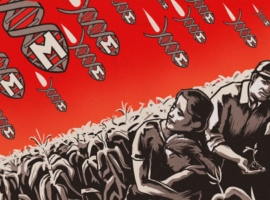Forget Patagonia: Meet MUJI, the Affordable, Stylish Organic Clothing Brand from Japan
Chances are that after spending $80-$100 on Patagonia, the most only sustainable clothing brand on earth that you can buy from to avoid poisoning yourself and the environment from the highly dangerous pesticides used on cotton or the additives used in polyester, you realize that the cost of organic cotton fabric, hemp fabric, recycled polyester (without harmful additives), all made with workers paid a decent living wage, still really doesn’t justify their high price.
Then, just the moment you wish you could find a company that provides natural, eco-friendly fabrics that fairly compensates the workers all at an affordable price, a friend of yours comes along and refers to Patagonia as Patagucci. Your heart sinks. You realize that the iconic brand that prides itself on altruism might fall short of altruism.
Perhaps they are not much different than the conglomerates they seek to be different from, you may wonder, and perhaps you paid the extra premium price just to have that brand name tag that shows you can afford to stick it boldly into the faces of other people about how much you care about the environment.
“Performing actions in secret is better than performing them publicly, except for the one who wishes to set an example.” – Prophet Muhammad (Kanz al-‘Ummal, no. 5273; Mizan ul-Hikmah page no. 851)
We should all strive to leave a merciful footprint on this earth. All what we do and consume should be with the intention to do the least amount of harm. We shouldn’t consume without thinking or asking questions such as where does this come from or how was it made. If enough of us did this, then companies would not get away with putting harmful chemicals in our food, household cleaners, personal care products, and even the clothes we wear. However, to truly do good, it must be coupled with good morals, mannerisms, and attitudes. Showing off is not a virtue.
Whereas Gucci becomes a status symbol for affluent people to show off their wealth, brands like Patagonia have the potential to be used as a status symbol for affluent liberal social democrats to show off their environmentalist street cred, despite the fact that Patagonia’s top employees made friends with Barack Obama, who at the time was Monsanto’s man in the White House and who did just as much to protect polluting corporations as his Republican counterparts.
Patagonia prides itself on pumping millions of dollars into social activism, yet coddles with powerful politicians who only put on the face of environmentalism while continuing the political and regulatory onslaught against organic farming. Which begs the question: does wearing the Patagonia badge on a $100 shirt really represent principled environmentalism (do good), or the illusion of being one (feel good)?
Luckily, there is an alternative brand that offers organic cotton and hemp/flax linen clothing at a far more affordable price, has a brandless design style (so that not only is your environmental impact modest, but your moral impact is too by not having a brand name to showcase), and does not donate to controversial social causes that are unrelated to the environment, ones that many environmentalists might disagree with, such as Patagonia’s support for Planned Parenthood and other population control initiatives.
That brand is called MUJI.
MUJI Ryohin Keikaku, or just simply MUJI, is a Japanese retail company which sells a wide variety of clothing and household items based on the Japanese philosophy of minimalism, recycling, reducing production waste, and of course a no-brand/brandless design philosophy. The name MUJI is derived from Mujirushi Ryōhin, which in Japanese means No-Brand Quality Goods.
Aside from their branches throughout Japan, they have several retail branches in the U.S. in addition to online direct sales.
According to Quartz’s sustainability report on MUJI, the company’s philosophy is what drives its sustainability by de facto. “Counter to the methods of fast fashion, MUJI’s production cycle is slow and purposeful. Instead of outsourcing to the known conglomerate of sweatshops, MUJI has invested in an eco-friendly dyeing and sewing plant in Cambodia and sources products from Kenya and Kyrgyzstan, abiding by sustainability principles set by the UN’s Business Call to Action.”
As of the time of this writing, the majority if not the totality of all MUJI products made with cotton use certified organic cotton. Additionally, many Spring season clothing lines are made with breathable, durable linen (made of either flax or hemp – the Kanji symbol used on their tags is 麻 or “asa,” which means hemp as the Kanji for flax 亜麻, or “ama” is similar in that it has a shared character but the flax Kanji is not used, so it is most likely 100% hemp).
MUJI has a lot of eastern style clothing as well. For those familiar with the “stand collar,” it is similar to the type of shirts worn by Kung Fu martial artists or by Middle Eastern Islamic mystics. The stand collar portrays the virtue of humility on the person who wears it more so than the conventional Western collar style. There are probably many clothing stores that sell clothing inspired by the Chinese/Japanese/Iranian style stand collar, but are likely made out of polyester or conventional cotton. Those who are fans of the stand collar can buy certified organic stand collar shirts from MUJI and not only have it reflect our own personal levels of humility, but its environmental impact reflects a humble footprint on this earth.
How does the pricing compare to Patagucci?
Let’s compare a simple men’s button down collared shirt.
On Patagonia, a simple long sleeve button shirt – the Vjosa River Puma shirt (organic cotton) – goes for $79 normal price.
On MUJI, a simple long sleeve button shirt – the Cotton Washed Gingham shirt (organic cotton) – goes for $29.90 normal price, currently $24.90 sale price at the time of writing this article.
That is a whopping $54.10 difference in price! You can buy two shirts from MUJI and still have $4 left over to spend on some healthy organic food.
The difference between Patagonia and MUJI is like the difference between Whole Foods and Trader Joe’s. For the latter, both offer healthy, natural foods with plenty of certified organic options, but one charges you an arm and a leg (and then some!), and the other is affordable for those on a lower income. Many people who first discover the health dangers that conventional fabrics pose in addition to the environmental impact, might first jump to Patagonia in the same way they ran to Whole Foods when they first discovered how Monsanto controls the FDA and deems their pesticides “safe” in highly corrupt approval procedures, only to later find out that they can get the same foods from Trader Joe’s at a reasonable price. MUJI is the same oasis for your wallet in the clothing department as Trader Joe’s was for your food budget.
For the Muslim women reading this article, MUJI also has a big selection of long-sleeved, long-length, loose fitting organic cotton modest dresses at relatively affordable prices. This is refreshing as many Muslim women have to get polyester and other synthetic dresses in order to adhere to modest virtues (the hyperlink in the first paragraph addresses the long-term health risks of the chemicals used in synthetic fibers).
To our knowledge, MUJI does not fund controversial initiatives like abortion.
I have personally read Yvon Chouinard’s Let My People Go Surfing from front to back. In the book, he contradicts himself on the issue of overpopulation. On one hand, he says that it is not fair to blame environmental problems on poor countries with high birthrates. He is right. Wealthy nations consume the majority of the world’s resources and do so completely disproportionate to their population size. Additionally, these developed countries often have low birthrates. The root issue are flawed economic systems that benefit multinational corporations, putting the world’s resources in the hands of a few, which allows them to create artificial scarcity and keep entire nations in poverty, as well as the consumerist culture pushed within these various countries which encourages people to consume far more than what they need, while those in poor countries mostly consume what they need and not much more. The real problem isn’t the population size.
Yet, despite this reality that Chouinard concedes to, he still thinks that population reduction is a solution to environmental problems and vociferously defends Patagonia’s decision to finance abortions via Planned Parenthood. Regardless of what you think of this controversial issue, in practical terms it would be better for Patagonia to remain neutral on this issue as far as their donations to social causes is concerned, as it is clearly unrelated to saving the environment, so that they do not drive away people who may oppose this issue. They could personally and morally support the issue, but taking customer’s money and donating it to divisive and controversial causes pushes customers away and forces customers to prioritize their values, perhaps driving an entire bloc of customers to prioritizing their pro-life values and thus buying clothes from unsustainable companies, in a sense taking away from Patagonia’s mission by giving more business to their eco-unfriendly competitors. Had they remained neutral, they would have a wider customer base which would have positive reverberations on the environment.
For those who are forced to prioritize their morals and principles, MUJI presents a great alternative for environmentalists who may disagree with some of Patagonia’s corporate donations to social causes.
MUJI carries men’s, women’s, and children’s clothing in certified organic cotton at an affordable price. No longer do we have to break the bank to wear clothes that do not harm our health nor our planet.




